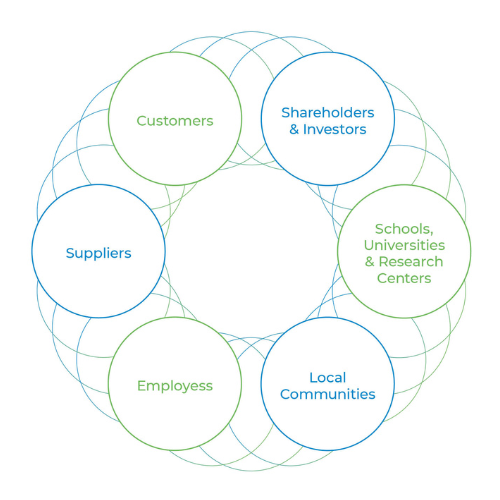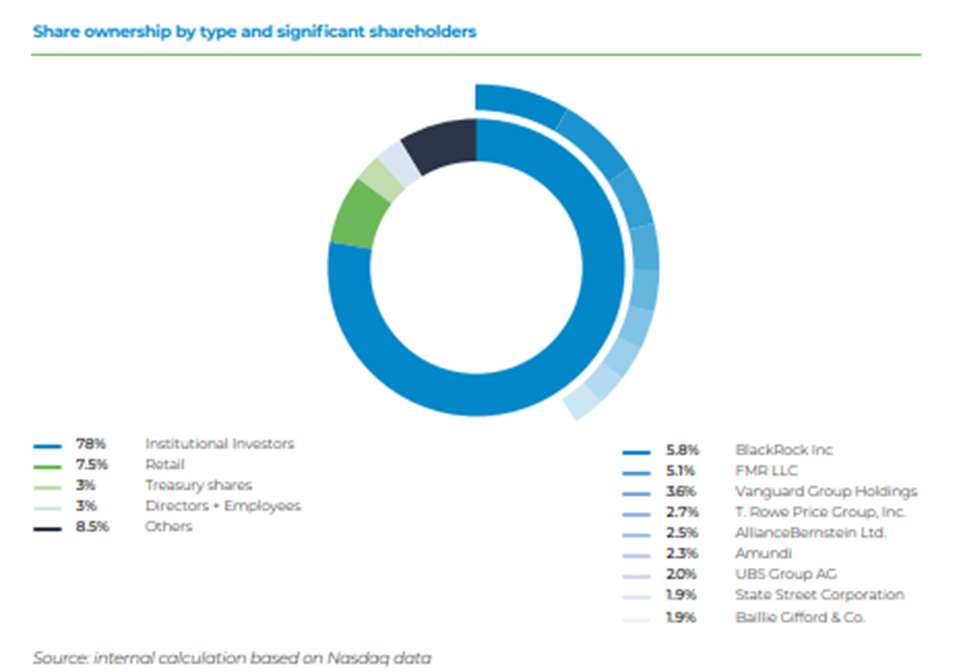Prysmian's Stakeholders
Prysmian's sustainability strategy is based on constant dialogue with stakeholders (customers, suppliers, universities and research centers, investors and trade unions). The goal is to develop a relationship of trust and transparency through an ongoing process during the numerous Multi-Stakeholder Engagement events held throughout the year. Through these events, we are able to identify the needs, problems and expectations of stakeholders and subsequently integrate them into the Group's strategy. These events also give rise to new improvement ideas that then lead to product and process innovation. Stakeholders are invited to provide their feedback on the main impacts (positive and/or negative) of the Group's activities throughout Prysmian's entire supply chain.




